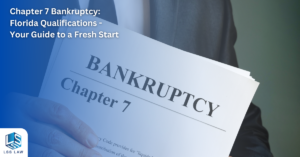Facing foreclosure is stressful and overwhelming. The thought of your family being thrown out on the street probably keeps you awake at night. You may be aware there are many options available, but it isn’t always easy to know which choice is best for you. This blog will provide a summary of a few actions to consider, but it is always best to consult with an experienced debt relief attorney to discuss your individual circumstances.
Mortgage modification
Each lender handles mortgage modifications differently, but there are a few basic factors that apply in every case. If you have already been denied a modification, it is a sign that it may be difficult to get one approved, but not impossible. One of the most important things to consider is whether you have equity in the property. This is significant because the mortgage lender is only likely to agree to a modification if they stand to lose money in the foreclosure process. The mortgage lender is likely to make money or at least break even in foreclosure of a property with substantial equity in it.
You may also want to investigate whether you are eligible for help from the federal government’s HAMP modification program or a similar government-sponsored program. It is important to note, however, that the paperwork required under HAMP and other programs can be a nightmare. You will only be successful in obtaining government assistance with your mortgage modification if you are diligent in staying on top of the required paperwork.
Short sale
A short sale is only a viable option if you are willing to sell your home. A short sale occurs when your lender agrees to accept less than the full balance due when you sell the property. The short sale process was designed to assist homeowners who are underwater on their mortgage or owe more than the house is worth. The difficulties of the short sale process are numerous. It often takes the lender a long time to consider the offer and accept or decline it. Thus, your buyer has to be willing to wait, sometimes months, to get an answer on their offer. Additionally, you must use a real estate agent and closing company familiar with short sales. However, a short sale keeps your home out of foreclosure and is less damaging to your credit score. You also can typically negotiate with your mortgage lender to waive any deficiency balance and accept the short sale proceeds as payment in full of your debt.
In tomorrow’s post, we will look at how filing a Chapter 7, Chapter 11, or Chapter 13 bankruptcy can impact a foreclosure.
Please keep in mind that every case is different, so if you are thinking of filing bankruptcy, and would like to schedule a no-cost consultation, please contact our office by completing the form on this website or calling us at 954-466-0541.









